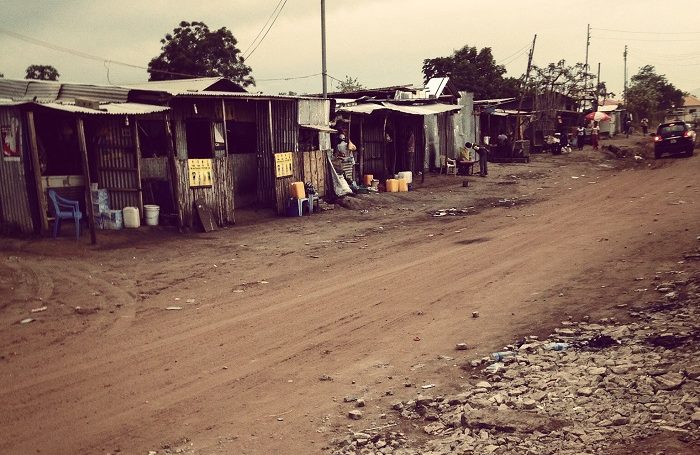
“The psychosocial trauma carried with me for a very long time” – Anonymous sexual assault survivor.
Sexual violence is a serious problem within the humanitarian community. I believe this to be true because I am a survivor of sexual violence, which I experienced while working as a humanitarian worker in Bentiu, South Sudan.
The details of my experience are widely available. I was drugged and, while blacked-out, raped by another humanitarian worker employed by a UNICEF contractor. My attempts to get accountability have been in vain, with UNICEF continuing to dismiss my efforts to file a complaint with them, and my organization having a number of procedural and policy gaps that resulted in my being re-traumatised.
Despite the fact that I was treated horribly, suffering far more than was necessary, I consider myself to be lucky. I am still here. I am still alive and functioning, and moving on past what happened to me. It is and will always remain a part of the fabric that makes up my being but it will not control me or how I react to situations. I am so much stronger than what happened to me, no matter how disgusting and unnecessary it was.
Since I came forward about my experience, many others have done so too. Many more continue to come forward, in various humanitarian forums and media outlets, through recording their experiences in the survey I created, or privately, to myself. The stories I am reading and hearing are heart wrenching. They are as unique as the individuals telling them – spanning the globe and different areas of humanitarian work.
At first, he started flirting with me, and I was very clear with him I was not interested. He continued to say inappropriate things, and then started touching me. It was hand under the table, then it was hand on my neck, and finally he walked into the kitchen when I was there, forcibly kissed me and grabbed my breasts. I pushed him away and walked out of the kitchen. For the rest of the time when we were both there, even though I could lock my door, it was so flimsy that I continuously worried that he would force himself into my bedroom. – Anonymous sexual assault survivor
On the last night before I left for R&R, a program manager from another organisation came into my tent while I was asleep, climbed into my bed naked and raped me. – Anonymous sexual violence survivor
One thing that unites us as survivors of sexual violence is that this happened to us while we were working as humanitarians. We were there to do good to others and we were abused instead by those around us. Another thing we have in common is that our experiences were dismissed, rejected or covered up by the humanitarian community.
There have been other campaigns and projects in the past to address sexual violence in conflict zones, some of which have led to the development of sexual exploitation and abuse policies for humanitarian staff. These efforts have laid an essential foundation upon which this current campaign rests, and without the work of those before us Report the Abuse could not exist.
However, there are many more improvements to be made and urgent gaps in our understanding that must be filled. The gap we have identified, and which my project intends to address, is the nature and extent of incidents of sexual violence within the humanitarian community, and how they are handled by different humanitarian agencies.
Sexual violence includes a range of crimes and it is important that we begin to break down the related silence and impunity. An incident of harassment within the humanitarian community is as important as an incident of rape. All forms of sexual abuse and violence deserve our full attention.
We do not yet know the full dimensions of the problem, as we have barely begun to explore the issue. But we know from many reports that a full spectrum of sexual violence ranging from harassment to assault is experienced by thousands of aid workers in a range of humanitarian crisis situations all over the world.
I have asked various actors who make up the core of the humanitarian community to fill out the survey I have created, and to have their voice heard. The results are continuing to emerge and over the next weeks and months a better picture of the situation will emerge. These survey results will help to shape the campaign to hold the UN and humanitarian agencies accountable for providing appropriate and responsive sexual exploitation and abuse policies for their employees.
Not everyone is ready to talk about these issues publicly, and that is okay. I have stepped forward and allowed my face to become the public image for this campaign. There are days that I am still shaken to the core by what happened, but those days do not outweigh the ones where I am strong enough to continue on.
It is increasingly evident that there is a sexual violence problem within humanitarian agencies. I am one of the many survivors of this problem, and we must work together to ensure that this does not continue to happen. Humanitarian organisations must commit to zero tolerance towards sexual violence and counter the prevalent impunity of perpetrators, especially those who may hide within their own set-up. Their supporters and funders must hold them accountable for doing so.
Humanitarianism is a challenging vocation, but it must not be debased by the misconduct of a few individuals.
Further Reading on E-International Relations
- Opinion – The Path Beyond Trump in US Human Rights Policies
- Opinion – Impacts and Restrictions to Human Rights During COVID-19
- Troubling International Human Rights Advocacy
- Russian Democrats’ Stance on the LGBT Community: An Attitudinal Shift
- Business and Human Rights: Overcoming Old Paradigms, Pushing for New Frontiers
- The Changing Nature of African Conflicts: Regional Electoral Insecurity